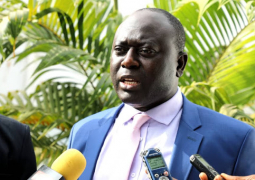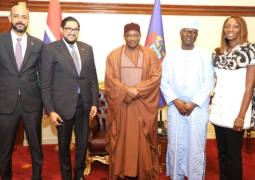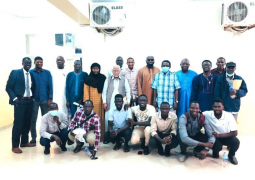The rights body highlighted this development in its index, “Education Access across the African Union” as it seeks to promote the education of pregnant girls and adolescents in a campaign dubbed “A Brighter Future: Empowering Pregnant Girls and Adolescent Mothers to Stay in School”
“The Gambia adheres to a re-entry policy for girls who dropped out of school as a result of pregnancy and early marriage,” HRW enumerated.
The rights body noted that The Gambia adopted the 2006 Re-Entry Policy. It added that there are 68 birth rate per 1, 000 girls aged 15-19 (UNFPA, 2004-2020), 26% percent of girls are married by age 18 (2013), and that the country has ratified the African Charter on the Rights and Welfare of the Child.
Further, it added, The Gambia has also ratified the Protocol to the African Charter on Human and Peoples' Rights on the Rights of Women in Africa (Maputo Protocol) and the African Youth Charter.
Senegal has also been ranked among the countries protecting pregnant girls’ and adolescents’ right to education, as it has a re-entry policy system to enable such people re-enter school and continue their education.
Under Senegal’s policy, students who are pregnant are suspended until they give birth. To return to school, students should present a medical certificate showing they are healthy and ready to resume schooling.
There are 68 birth rate per 1000 girls in Senegal, aged 15-19, according to UNFPA (2004-2020), and about 29% of girls are married by age 18 as of 2017.
Senegal has also ratified African Charter on the Rights and Welfare of the Child, the Protocol to the African Charter on Human and Peoples' Rights on the Rights of Women in Africa (Maputo Protocol), as well as the African Youth Charter.
Meanwhile, amongst other countries with a law, policy or other measure that protects pregnant girls’ and adolescent mothers’ right to education are Botswana, Burkina Faso, Benin, Burundi Cameroon, Cape Verde, Central African Republic, Côte d’Ivoire, Democratic Republic of Congo, Eswatini, Gabon, Ghana and Kenya.
Also among such countries are Lesotho, Liberia, Madagascar, Malawi, Mali, Mauritania, Mauritius, Mozambique, Namibia, Niger, Nigeria, Rwanda, São Tomé e Príncipe, Seychelles, Sierra Leone, South Africa, South Sudan, Tanzania, Togo, Uganda, Zambia and Zimbabwe
Countries with laws or practices that criminalise pregnancy and sexual relationships outside of marriage in the region are Algeria, Egypt, Libya, Mauritania, Morocco/Western Sahara and Sudan.
Countries with no laws or policies that protect pregnant girls’ and adolescent mothers’ right to education are Angola, Congo (Brazzaville), Ethiopia, Guinea Bissau, Somalia (Federal Government) and Tunisia, according to the international rights body.
Equatorial Guinea is the only country that has school bans against pregnant students and adolescent mothers.
However, the global rights organisation was unable to reach definitive conclusions on the law or policy frameworks available in Comoros, Djibouti, Eritrea, and Guinea.
Read Other Articles In Headlines
Pastor dragged to court for alleged breach of contract
Oct 16, 2024, 11:27 AM




